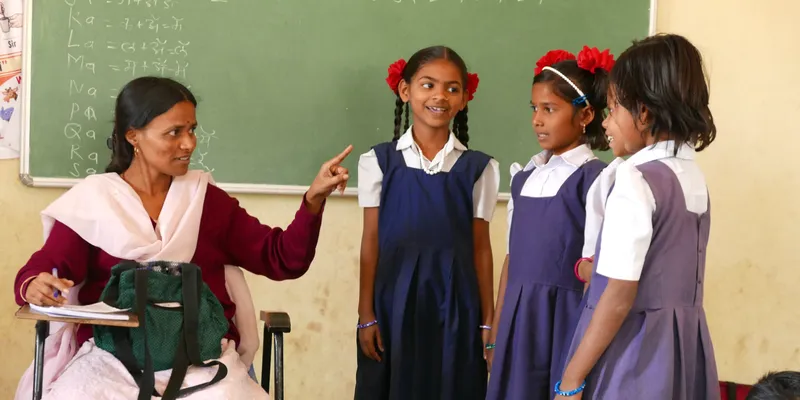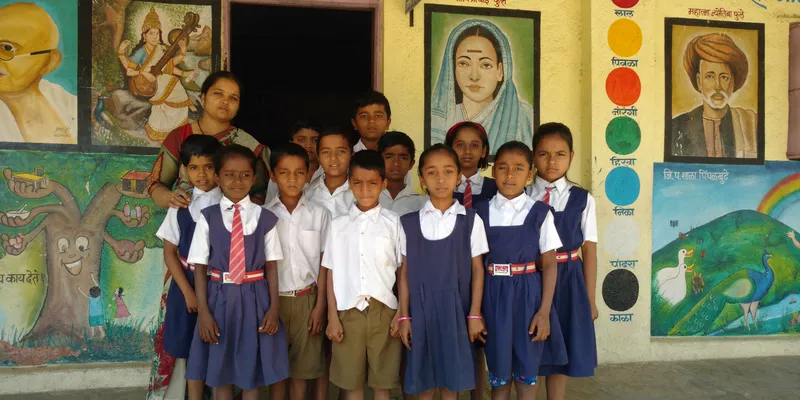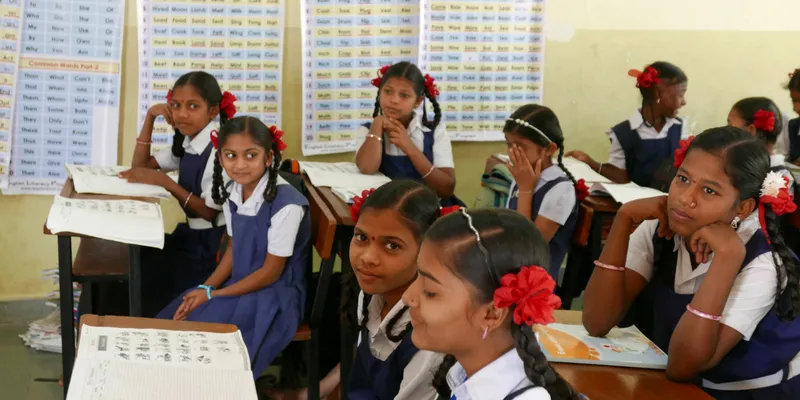Creating English language lessons with regional language tools: LeapForWord
This Mumbai-based NGO is spreading English literacy and making sure that students are employable in the long run.

Did you know that learning any language requires an environment that speaks the language, a peer network that converses in the language, a language expert who can teach in a structured manner, and technology with which we can learn the language on our own? This means that we need well-versed teachers, enthusiastic peers, a conducive family environment, and audio-visual aid to learn a language effectively.
But, how do you teach English to students who do not have any of the above? LeapForWord does it with regional language tools.
English Literacy Programme
LeapForWord uses a unique translation algorithm developed out of more than 10 years of fieldwork, using English and a regional language originating from Sanskrit. English assumes a rule-based structure, like in Mathematics, by being broken down into a series of concepts. The teachers teach these in sections and in the mother tongue. The English Literacy Programme of this NGO aims to bring students to a state of competency where they can read, write, speak, comprehend and structure English correctly. This flagship programme has so far reached 20,000 students through 1,500 trained teachers across five districts of Maharashtra.

Local youth are trained with expertise and skills to be Teacher Entrepreneurs and teach the children. Devsing Pawara, a teacher in Boradi village, says,
I was working at a site and breaking rocks when a friend met me and asked me about joining LFW. I used to like English. I joined because I could learn something. My first assignment was as a supervisor and I managed 13 classes.
After supervising the classes for a while, Devsing took up teaching assignments because working hands-on seemed more enjoyable to him. He believes that if these techniques adopted by LeapForWord were used during his childhood, his own life would have been completely different.
Dilwarsing Pawara who teaches in Sule and Sanghvi tells his students not to drop out of school because one needs education for even simple, daily tasks. While Devsing had not been able to pass class 12 in school, Dilwarsing had completed his school education. Both are proud members of LeapForWord. They are part of a movement that provides a different bent of education to students in rural Maharashtra.

LeapForWord has individual and institutional donors, and a small percentage of funds flow in from sale of books, teaching charts, and other study material. EdelGive Foundation, Ashoka, Xavier Institute of Management & Research (XIMR), and UnLtd India are its major sponsors. Currently the organisation is also raising funds through crowdsourcing.
The dream
Thirty-year-old Shyamlal, a member of Govind Sarpanch of Joyada Panchayat, Dhule Zilla, where this NGO works, recalls how they would have to convince their parents of the need for schooling. “We would have to ask them, fight them. Parents often did not pay fees,” he says.
To create a network of people for the purpose of making a dream come true, Pranil Naik launched LeapForWord in 2006. “After I started my job, I wanted to do something with my weekends. That’s how I offered my services to a local night school, and from there I somehow reached St. Catherine’s Home and continued teaching till I finished my MBA. The purpose of studying so much cannot just be an increasing salary. I happened to get in touch with like-minded people and started LeapForWord.”
In the past 11 years, I have been exposed to some extremely brilliant people – teachers, bosses, peers, colleagues — who have in their own unique way, strengthened my beliefs. Our work may eliminate the problem itself. If and when it does, it would be a life well spent.

LeapForWord shifts the pedagogy structure from listening-speaking-reading-writing to reading-writing-understanding words-constructing grammatically correct sentences. This, they believe, is the best way to teach a child a language to which he has little or no exposure. The problem – children do not learn English because they do not experience it – is, thus, solved.
As a gift of encouragement, the organisation arranges Word Power Championship to celebrate the achievement of students who participate in the Literacy Programme and to applaud the efforts of their teachers. This vocabulary-based competition is exclusively for students of regional language schools.
Teachers can access all learning levels of the Literacy Programme through a free mobile app, or through reference text books. LeapForWord intends to make its tools and techniques accessible to one million teachers in Maharashtra, Gujarat and Hindi-speaking states by December 2019.
Enter the SocialStory Photography contest and show us how people are changing the world! Win prize money worth Rs 1 lakh and more. Click here for details!







